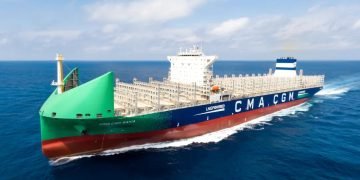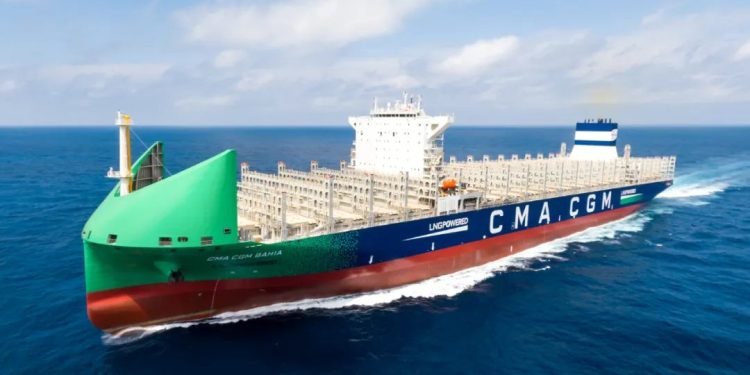The future of ocean shipping might not have a captain at the helm. CMA CGM, a world leader in containerized transportation, recently announced a groundbreaking trial – the operation of the world’s first autonomous container ship. This initiative signifies a bold step towards exploring artificial intelligence (AI) for vessel navigation, potentially revolutionizing the way we transport goods across vast stretches of ocean.
The Evolving Landscape of Ocean Shipping:
The ocean shipping industry is constantly evolving, but it faces challenges:
- Labor Shortages: Finding qualified seafarers can be difficult, impacting crew availability and potentially delaying operations.
- Human Error and Fatigue: Human error and fatigue can contribute to accidents and safety concerns at sea.
- Optimizing Operations: Traditional navigation methods may not always be the most efficient for fuel consumption or route planning.
CMA CGM Charts a Course with AI:
CMA CGM’s AI captainless ship trial represents a significant development:
- AI-Powered Navigation: Advanced AI algorithms will be used to control the ship’s course, taking into account weather conditions, traffic, and other factors.
- Human Oversight and Intervention: Despite AI control, a crew will be onboard to monitor operations and intervene if necessary.
- A Stepping Stone to Autonomy: This trial paves the way for further development of AI-powered navigation systems for potentially fully autonomous vessels in the future.
Benefits for the Industry and the Environment:
The successful implementation of AI captainless ships could offer several advantages:
- Reduced Operational Costs: AI systems could potentially optimize routes and fuel consumption, leading to cost savings.
- Enhanced Safety: AI systems may be less prone to human error, potentially improving safety at sea.
- Environmental Benefits: Optimized routes and potentially cleaner technologies could contribute to a reduced environmental footprint for shipping.
Challenges and Considerations of AI Captainless Ships:
Despite the potential benefits, challenges remain for widespread adoption of AI captainless ships:
- Regulatory Landscape and Acceptance: New regulations and international agreements may be needed to govern the operation of autonomous vessels.
- Technological Advancements and Reliability: AI navigation systems require further refinement and extensive testing to ensure reliability.
- Cybersecurity Concerns: Robust cybersecurity measures are crucial to protect AI systems from potential cyberattacks.
A Bold Voyage Towards the Future of Shipping:
CMA CGM’s AI captainless ship trial signifies a groundbreaking step towards the future of ocean shipping:
- A Pioneering Example: This initiative sets a strong precedent, encouraging further exploration of AI in ship navigation.
- A Catalyst for Change: The trial could accelerate the development of regulations and technological advancements for autonomous shipping.
- A More Efficient and Sustainable Industry: AI-powered shipping has the potential to be more efficient, safer, and contribute to a more sustainable maritime industry.























